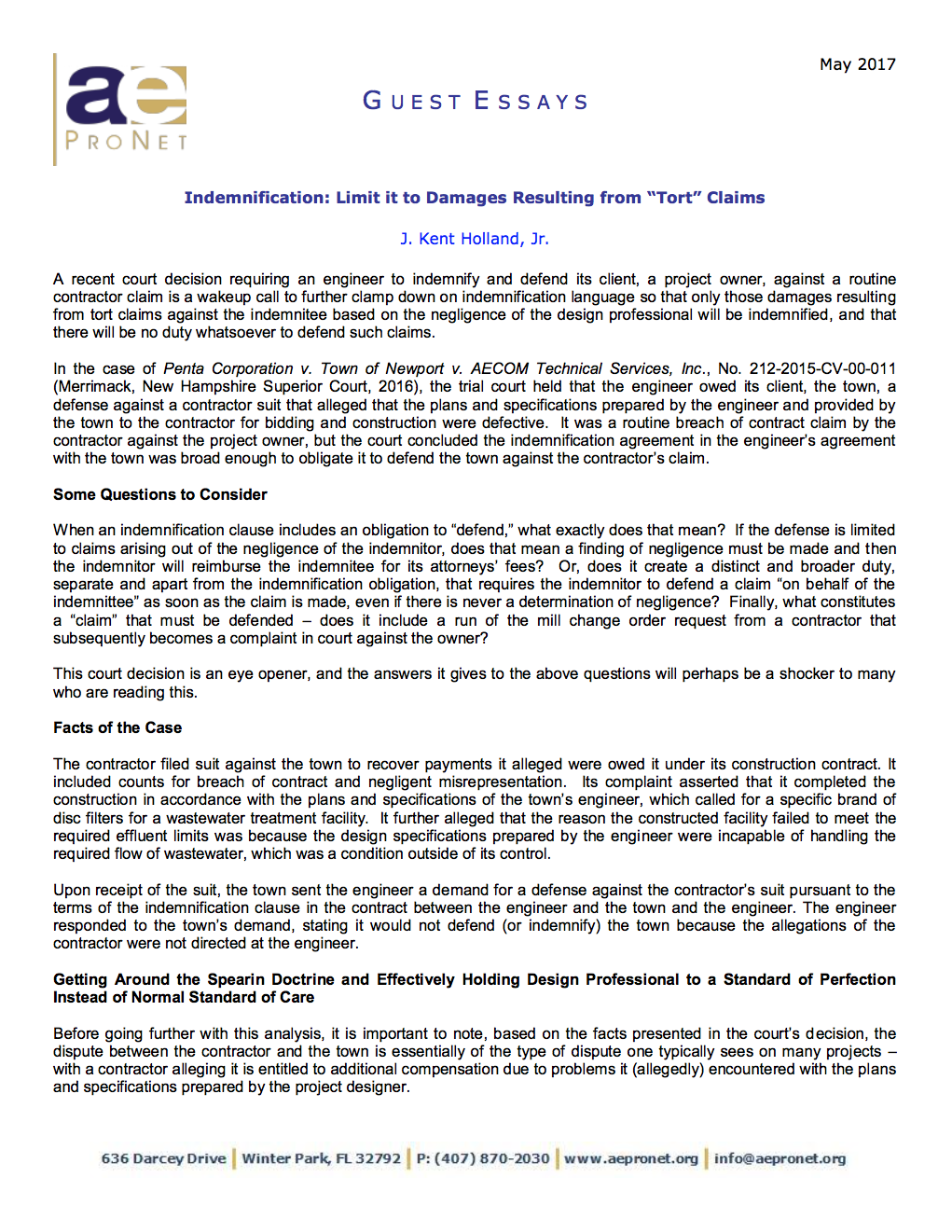Looking for something in particular? Use the search below to filter our resources.

Latest Resource
Indemnification: Limit it to Damages Resulting from “Tort” Claims
07/10/2017
A recent court decision requiring an engineer to indemnify and defend its client, a project owner, against a routine contractor claim is a wakeup call to further clamp down on indemnification language so that only those damages resulting from tort claims against the indemnitee based on the negligence of the design professional will be indemnified, and that there will be no duty whatsoever to defend such claims.
Download Newsletter